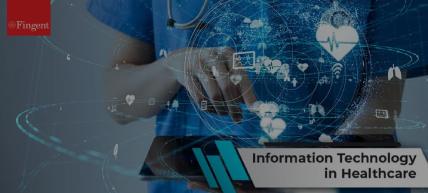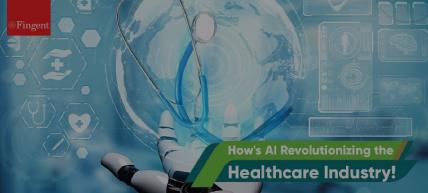Healthcare Industry
Transforming Healthcare through Innovative Software Solutions
Software development is bringing about significant change in the healthcare industry by providing innovative solutions that improve patient care, streamline processes, and drive efficiency. Various areas in the healthcare sector are digitalized to help healthcare providers manage patient data more efficiently, share information securely, provide remote care to patients, and make more informed decisions about patient care. This move has tremendously improved healthcare outcomes, reducing costs and making healthcare more accessible and effective for everyone.
| Electronic Health Records (EHR) | Appointment Management System | Medical Imaging |
| Healthcare Application Platforms | Health Information Exchanges (HIE) | Invoice & Billing Systems |
| Electronic Health Records (EHR) | Appointment Management System | Medical Imaging |
| Healthcare Application Platforms | Health Information Exchanges (HIE) | Invoice & Billing Systems |
Healthcare Software
Software Solutions for Optimizing Healthcare Operations
Electronic Health Records (EHR)
EHRs are digital versions of paper medical records. They are used to store and manage patient information such as medical history, diagnosis, treatment plans, and test results.
Telemedicine Software
Telemedicine involves using technology to provide remote medical care and conduct virtual consultations with patients.
Medical Imaging
This software application enables healthcare providers to analyze and interpret medical images such as X-rays, CT scans, and MRI scans.
Appointment Booking Software
This software simplifies the process of scheduling a doctor’s visit and allows patients to book, reschedule, or cancel appointments, receive notifications, and provide relevant information to doctors.
Remote Patient Monitoring (RPM)
RPM uses the latest tools and technologies to monitor patients’ vital signs and health metrics from a remote location, such as heart rate and blood pressure, glucose and blood oxygen meters, and wearable ECG monitors.
Hospital Management Software
A digital platform that enables healthcare providers to manage and streamline their operations- patient registration, appointment scheduling, inventory management, billing and invoicing, and medical records management.
Healthcare Billing Software
Automates and simplifies medical billing procedures, providing secure payment options and streamlined transaction tracking. It also offers advanced analytics to evaluate financial conditions and identify cost-saving opportunities.
Health Tracking Apps
Healthcare apps are mobile applications that enable individuals to manage and monitor their health and well-being through various functions such as tracking diet, fitness, and health data.
Upgrade your healthcare processes using modern software solutions and maximize profitability in your operations.
Technologies
Emerging Technologies and Trends in the Healthcare Industry
Artificial intelligence (AI) and machine learning
Internet of Things (IoT) devices and sensors
Blockchain for secure data sharing and management
Virtual and augmented reality for training and education
Robotics and automation for surgeries and other medical procedures
Nanotechnology for drug delivery and monitoring of diseases
Precision medicine for personalized treatments
Genomics for understanding the genetic basis of conditions
Use Cases
Healthcare Scenarios Leveraging the Benefits of Software Solutions
Appointment scheduling and management
Software can simplify the process of booking appointments with healthcare providers, allowing patients to book, modify, or cancel appointments online easily.
Electronic health records (EHRs)
Software solutions can help manage patient data, from medical history to treatment plans, in one centralized location, accessible to authorized healthcare professionals.
Medical billing and claims processing
Software automates billing and insurance claims, reducing errors and streamlining reimbursement.
Patient monitoring
Wearable devices and mobile apps can track patients’ health metrics and transmit the data to healthcare providers for real-time monitoring and analysis.
Health and wellness apps
Software applications to help users track various aspects of their health and wellness, including fitness, nutrition, and mental health. These can be installed on smartphones and wearable devices.
Clinical decision support
Using data and analytics provides healthcare providers with information to make more informed decisions. It includes diagnostic support, medical recommendations, and treatment protocols.
Medical imaging and diagnostics
Software is used in radiology and pathology to interpret and analyze medical images such as X-rays, CT scans, and MRI scans. This software helps identify and diagnose various conditions and diseases and assists with treatment planning and monitoring.
The Fingent Way
Custom Software Solutions for Healthcare Operations
Custom Healthcare Information System
Fingent helps incorporate custom software solutions to meet the needs of healthcare consumers. Developing effective healthcare apps to streamline communication between patients and healthcare providers, including analytical dashboards powered by machine learning to improve clinical transparency, financial transparency, and better decision-making.
Custom Healthcare Software Development
Fingent provides customized apps to help patients access more control over healthcare with easy appointment scheduling systems and inquiry ability. Also, ensure physicians are better able to diagnose and monitor their patients. Custom software development enables doctors and patients to empower technology for enhanced healthcare.
Improvement in Health Literacy
With online platforms and custom application development, Fingent empowers individuals with the health literacy they need to enable streamlined workflows and enhanced patient-caregiver interactions.
Seamless Management
Fingent provides integrated platforms to improve medical care offered by nonprofits- automating and systemizing their cash flow management. Automating approval requests, managing and monitoring funds, and streamlining these fund requests, are just a few of the benefits our customized platforms offer.
Collaborating with technology experts can ensure seamless hospital management and higher quality of care through customized software solutions.
Client Stories
Fingent’s Featured Software Solutions in the Healthcare Industry

Fingent collaborated with NovitaCare, a healthcare startup, to develop an all-in-one online platform that connects patients, providers, research, and non-profit organizations. This platform streamlined healthcare services and workflows for better patient engagement and outcomes.
Outcome:
- Easy and efficient administration
- Streamlined and optimized workflow
- HIPPA compliance

A top pharmaceutical company with projects in respiratory diseases, pain, and oncology, faced the challenge of tracking invoices from multiple distributors. Fingent stepped in with a solution: a user-friendly web portal that enabled distributors to submit expenses, attach invoices, and make claims hassle-free.
Outcome:
- Centralized platform for tracking invoices and claims
- Reduced manual labor and paperwork, which resulted in cost savings
- Automated invoice and expense claim management
- Streamlined the process to submit expenses and attach invoices

Fingent developed a data visualization solution that allowed NHS to analyze hospital performance across multiple disciplines with interactive and visual graphs. This enabled the organization to identify key metrics, trends and make informed decisions, ultimately improving patient outcomes and healthcare delivery.
Outcome:
- Detailed performance analysis across various parameters
- Seamless collaboration and communication across different departments and teams
- Make informed decisions based on detailed analysis
- Automates the collection and analysis of hospital data
Cost
Budgeting for Custom Software in Healthcare
Estimating the cost of building custom software in the healthcare industry involves considering several factors.
- Complexity: The complexity of the software, including its functionality, features, and integration with other systems, can significantly impact the development cost.
- Technology stack: The technology stack used to develop the software can impact the development cost.
- Testing and validation: Rigorous testing and validation are necessary to ensure the software is safe, reliable, and compliant with healthcare regulations.
- Project management: Effective project management is essential to ensure the project is delivered on time and within budget.
- Support and maintenance: Ongoing support and maintenance are necessary to ensure the software remains up-to-date and functions as intended.
By considering these factors, an accurate estimate of the development cost can be established, helping to ensure that the project is delivered within budget and on time.
A tailored healthcare software solution can optimize your clinical workflows, improve patient outcomes, and achieve cost savings in the long term.
Insights
More Insights on Healthcare Software Development
Augmented Reality in Healthcare: Use Cases, Examples, and Trends
It’s no joke or a mere sci-fi theory! We’re experiencing the impact of Augmented Reality in healthcare, right in front of us. Using an AR-enabled head-mounted device, a surgeon can review patient vitals during a medical procedure without juggling multiple devices or displays. In doing so, they are less likely to misread or misinterpret the data.





 US
US Insurance
Insurance









































